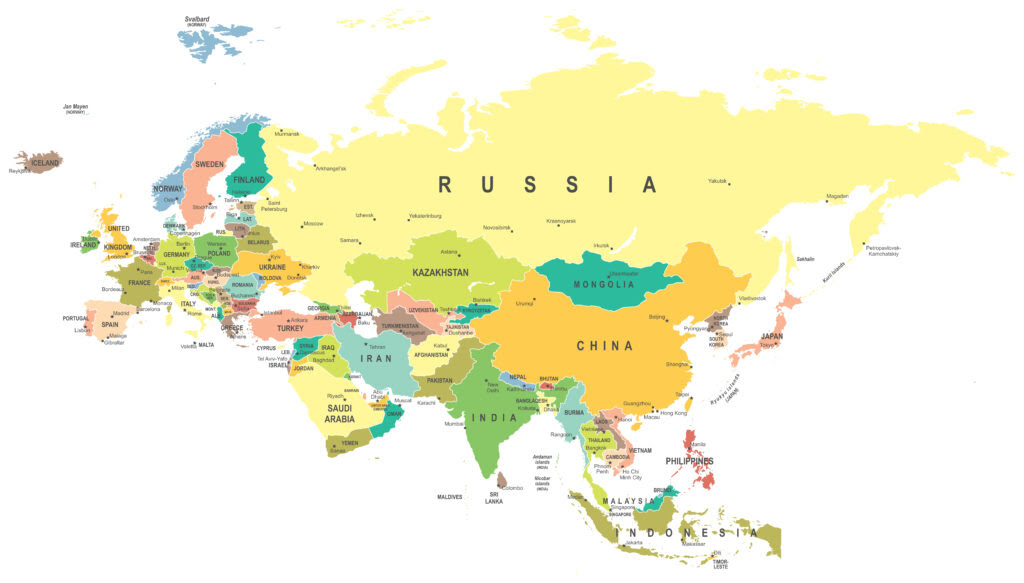This type of white hat vs. black hat narrative makes for good copy and confirms western stereotypes. If peace is going to prevail, however, a more nuanced examination of Russia’s response to US political and military meddling in Ukraine is needed. This should also include a more honest analysis of NATO expansion eastward and a sober look at the threat that far-right Ukrainian militias pose for Europe.
In this sense, it would be beneficial to lean on one of the main lessons former Secretary of Defense, Robert McNamara, outlined in Errol Morris’s 2003 documentary, The Fog of War. Regarding the peaceful resolution of the Cuban Missile Crisis, McNamara explained that it was essential for President Kennedy to empathize with the enemy. More specifically, McNamara urged that when confronting the enemy “[we] must try to put ourselves inside their skin and look at us through their eyes just to understand the thoughts that lie behind their decisions and their actions.” Taking this radical but simple step helped Kennedy and Khrushchev step back from the edge of nuclear annihilation. With rising tensions between the US and Russia again threatening the specter of nuclear Armageddon, Biden should consider McNamara’s advice.
This, of course, would demand that the US government and media objectively listen to some of Putin’s claims. Given the historic climate of mistrust between the West and Russia, this is an admittedly big ask. But when Putin outlines US involvement in the crisis that led to the Ukrainian Civil War, he is providing essential context that both Washington and western journalists leave out. Still, given the fact that in late 2013 John McCain was rallying the masses on Kyiv’s Maidan Square, it’s hard to deny US interference. Furthermore, a leaked 2014 conversation between State Department official, Victoria Nuland, and Ambassador to Ukraine, Geoffrey Pyatt, clearly highlights US kingmaking attempts in Ukraine. Is it too much to ask how this was perceived by Putin and the Russians?
Or how about Putin’s claims that the “Special Military Operation” is designed to de-militarize and de-Nazify Ukraine? Even before last February’s invasion, the US was responsible for 90% of Ukraine’s military aid, including lethally effective Javelin anti-tank missiles. As far back as 2014, Lt. General Ben Hodges, former commander of the US Army in Europe, stated that “First and foremost, U.S. military aid represents a physical manifestation of American support, which is essential.” Exposure to such facts, combined with knowledge of NATO expansion since 1991, might provide insight into how this threat is perceived by Russians.
Presented in this context, the question of who provoked the war in Ukraine could be seen in a new light. Nearly ten years ago, the Associated Press’s Matt Lee pressed State Department Spokesman, John Kirby, precisely on this issue. “Is it not logical to look at this and say the reason that the Russian army is at NATO’s doorstep is because NATO has expanded rather than the Russian’s expanding? In other words, NATO has moved closer to Russia rather the Russian’s moving closer to NATO.” When Kirby responded that “NATO is not an anti-Russian alliance”, Lee countered, “[F]or 50 years it was an anti-Soviet alliance…Do you not understand how, or can you not even see how, the Russians would perceive it as a threat?”
Regarding denazification, prior to Russia’s invasion, the western press had reported assiduously on the rise of far-right militias within Ukraine’s military ranks. Numerous articles, many focused on the Azov Battalion, appeared in the Guardian, BBC, and Reuters detailing the disturbing xenophobia and antisemitism espoused by these extremists. One particularly frightening investigation by Time correspondent Simon Shuster quoted militia members claiming that “We are Aryans and will rise again” and “Being tolerant to LGBT people, this not natural. This is brainwashing.” On this note, Putin’s recent speech repeated that there is a fascist presence in Ukraine and that “the West will use anybody – terrorists, neo-Nazis – if they fulfill its aims” of fighting against Russia.
Shuster’s report takes on greater significance in light of increasing attacks by neo-Nazi groups worldwide. In 2018, The Guardian reported that the outgoing head of UK counter-terrorism policing, Mark Rowley, revealed that four far-right terror plots had been foiled in 2017 and extreme right groups linked to Ukraine were seeking to build international networks. Since the US has a history of allying with radical groups, it’s worth remembering the devastating consequences of such alliances. One might recall Zbigniew Brzezinksi, President Carter’s National Security Advisor, proudly claiming, “We created the mujahedeen”. Besides the short-term goal of driving the Soviets from Afghanistan, this “creation” also led to the emergence of the Taliban, the September 11 attacks and the ensuing US “War on Terror”. This is not to say that Ukraine will become a failed state like Afghanistan and fertile ground for neo-Nazi groups, but considering this possibility might shed light on Russia’s goal to denazify the Ukrainian military.
The war in Ukraine is the tragic consequence of Russian aggression. But trying to understand the reasons why the Russian government took the decision to invade might help defuse the conflict. Since the West’s current plan of escalation promises more destruction of Ukraine and its people, as well as the threat of nuclear holocaust, following McNamara’s advice and trying to see the conflict through Russian eyes, is an important first step toward negotiating peace.
___________________________________________
